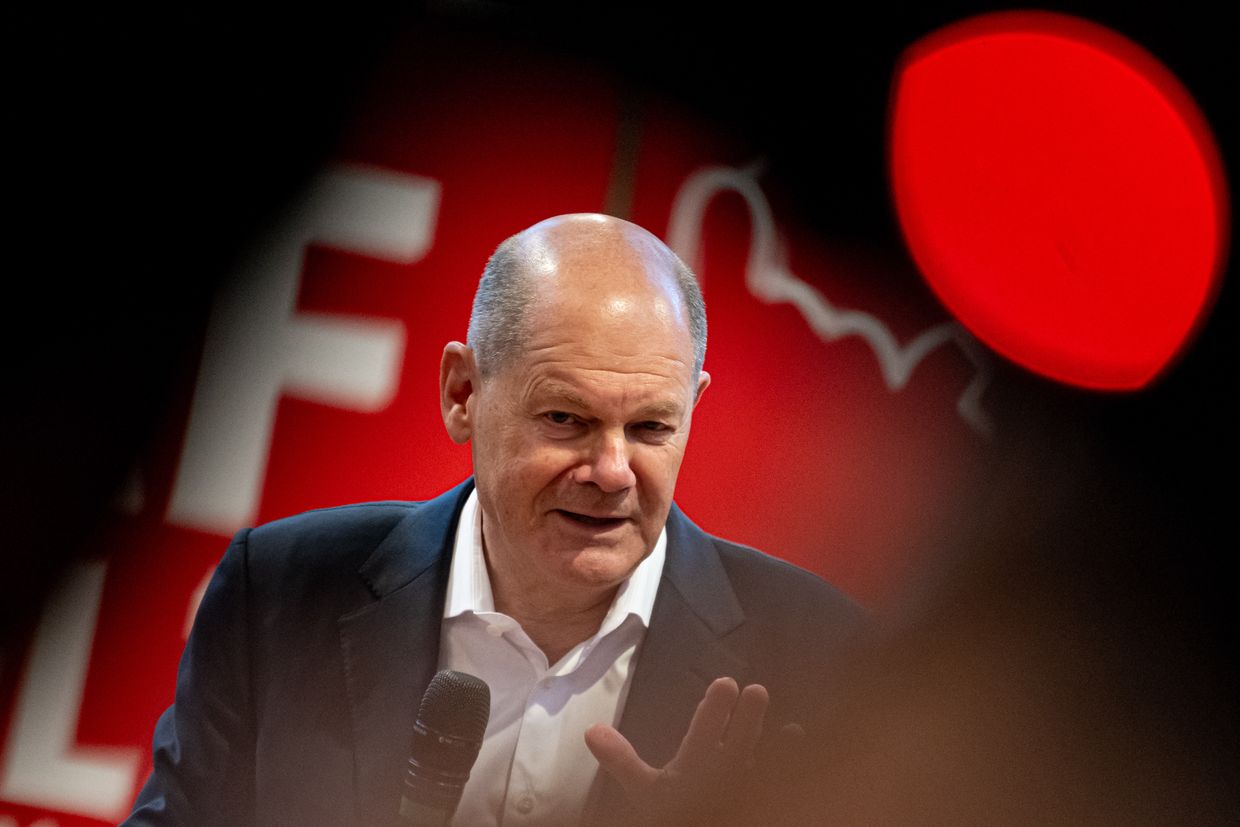“Russian intelligence is everywhere. And its propaganda is everywhere, not only in Estonia but all over the world,” Estonian President Alar Karis told the Kyiv Independent during an interview on the sidelines of the 20th annual Yalta European Strategy (YES) Conference in Kyiv.
Russia has been actively meddling in the domestic affairs of the Baltic states.
An Estonian professor was arrested by the Estonian Internal Security Service (ISS or Kapo) in January 2024 on suspicion of being a Russian spy and later sentenced to six years in prison.
Meanwhile, Moscow has also been ratcheting up tensions in the Baltic Sea. GPS jamming, disappearing buoys and an aborted "ocean-grab" are just some of the recent events that are raising concerns about the Kremlin's intentions in the region.
"Things are coming to the surface again in a very dramatic way at the moment," Elisabeth Braw, a Senior Fellow at the Atlantic Council, tells the Kyiv Independent.

Testing waters
A draft decree posted on the Kremlin's website on May 21 declared Russia would be unilaterally redrawing the maritime border with Lithuania and Finland in the Baltic Sea.
Then, as quickly as it appeared, the draft decree vanished on May 22.
There has been no public explanation from the Kremlin as to why it was taken down, but Lithuanian Foreign Minister Gabrielius Landsbergis described it as "an obvious escalation against NATO and the EU."
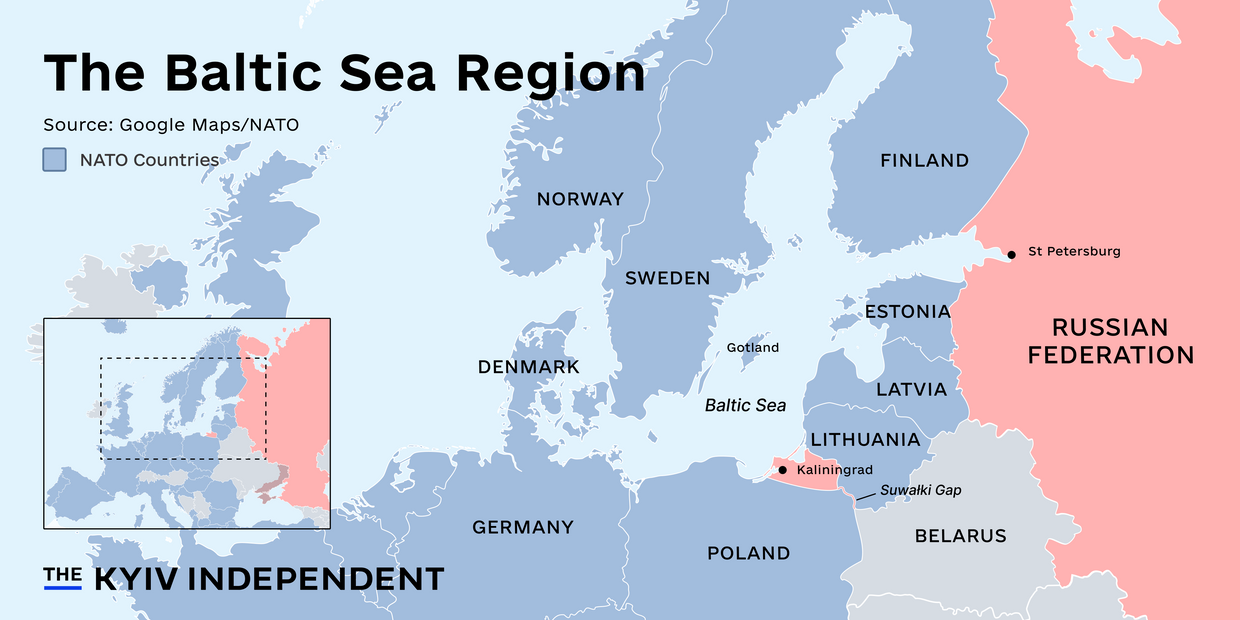
A day after the draft decree disappeared, so did buoys on the Narva River which mark the separation of Russian and Estonian territory.
Both countries agreed on the buoys' location in 2022, but the Kremlin then backtracked and disputed the placement of more than half of the 250 markers, which Russian border guards unilaterally began removing on May 23 without providing an explanation.
Estonian Prime Minister Kaja Kallas described it as a "border incident" and said it was being investigated.
“You see quite a lot of change in the Baltics. We are trying to convince our people to spend more on defense, to build up factories, to cooperate more with Ukraine, and to learn everything that we can because we feel that if Ukraine is unable to stop the Russians, then the Russians will not stop, and then who knows what will happen next,” Lithuanian Foreign Minister Gabrielius Landsbergis told the Kyiv Independent in an exclusive interview.
"If Ukraine is unable to stop the Russians, then the Russians will not stop."
The Latvian defense minister shared a similar concern.
"We are in a hybrid conflict right now," Latvian Defense Minister Andris Spruds told the Kyiv Independent on Aug. 23.
"Unfortunately, this is the neighbor we are facing," he added.
Jamming signal
Russia has been suspected of intentionally jamming the GPS systems aboard commercial aircraft for more than a decade, but incidents over the Baltic Sea region have skyrocketed in recent months.
According to a report by The Sun in April based on data from the website GPSJAM.org, some 46,000 aircraft have reported problems over the Baltic Sea since the previous August, with most of them occurring in Eastern Europe near borders with Russia.
Some incidents have resulted in aircraft having to turn around mid-flight, and even a plane carrying the U.K. defense secretary has been targeted.
Describing the phenomenon earlier this year, Landsbergis said it was "getting too dangerous to ignore."
While it's almost impossible to definitively prove who is responsible for the GPS jamming, a jammer blocks a signal from the point where it is deployed up to a distance of 350 kilometers for some military-grade models.
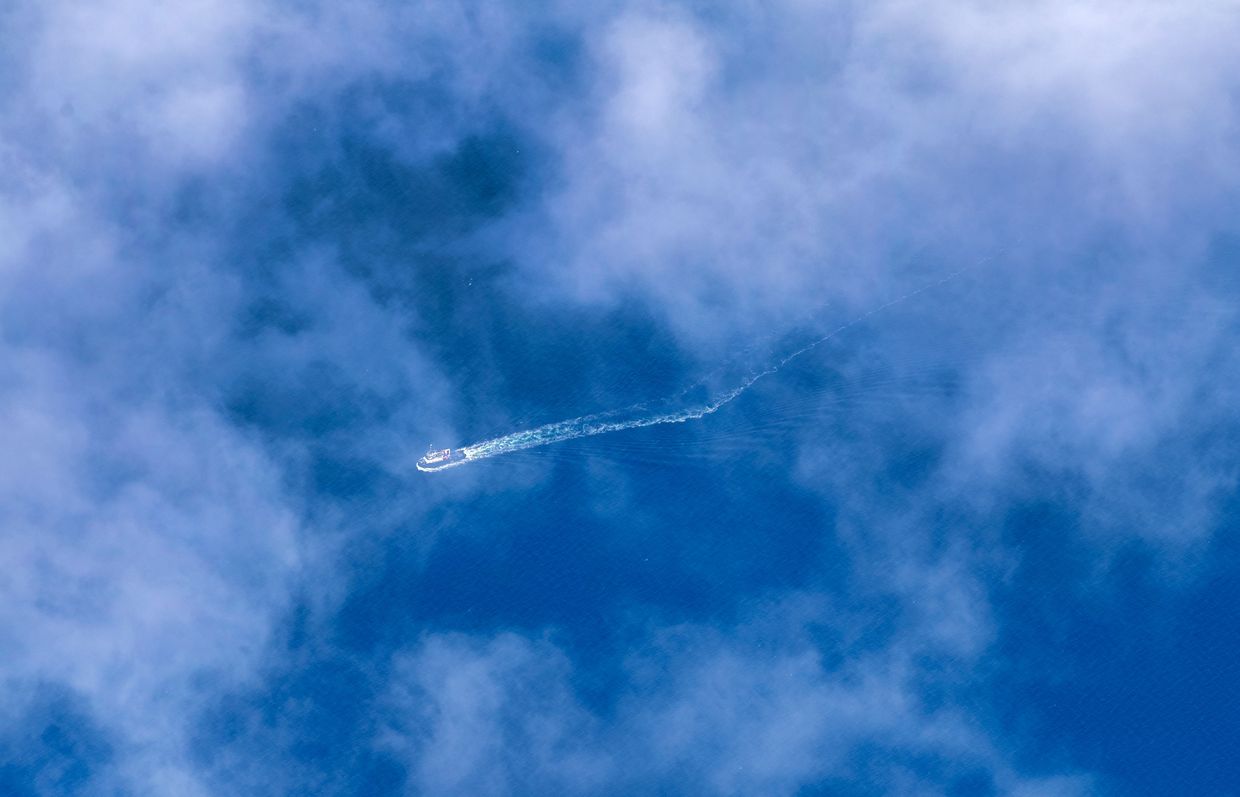
This means in order to block GPS signals over the Baltic Sea, the jammer would have to be located in one of the countries surrounding it. Unless NATO countries are engaging in self-sabotage, this leaves one obvious candidate – Russia.
The Baltic states have also been actively countering a variety of other attacks, including cyber.
“We have been prepared for cyber-attacks for quite a long time because they started in 2007. We also start to convince also Western parties that this is a very important issue,” President Karis told the Kyiv Independent.
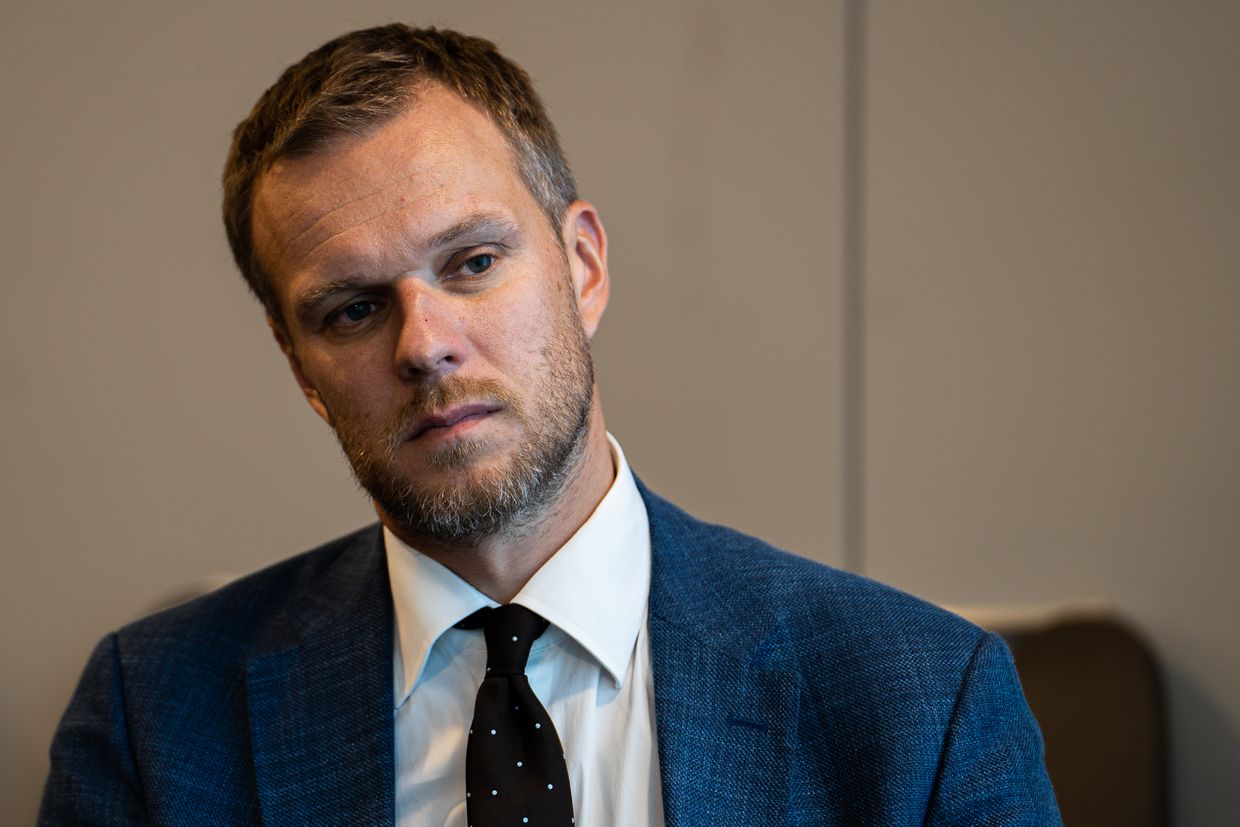
Military intentions
Back in May, an ominous warning was issued by NATO's newest member, Sweden.
Micael Byden, the supreme commander of the Swedish Armed Forces, said Putin may be seeking dominance over the Baltic Sea and has his eye on the Swedish island of Gotland.
Located around 330 kilometers (around 200 miles) north of the Russian exclave Kaliningrad, Gotland is Sweden's largest island, and its central location means it is of vital strategic importance in the Baltic Sea.
"Who controls Gotland controls the Baltic Sea," said Byden.
NATO military exercises in the Black Sea in June were another reminder of how much things have changed in a short time. Twenty NATO member states, including the recently added Sweden and Finland, put forward 9,000 troops, 50 ships, and 45 aircraft to take part in the drills.
What does Russia have in the region?
As well as having direct access to the Baltic Sea through its most eastern arm in the Finnish Gulf, Russia also has the exclave of Kaliningrad, a small piece of land sandwiched between Poland and Lithuania.
Russia's Baltic Sea Fleet has its headquarters and main base in Kaliningrad, with another base in Baltiysk.
Western analysts have described the size and power of the Baltic Sea Fleet as "somewhat limited," and when Russia conducted military exercises in the Baltic Sea in August 2023, around 30 warships and boats were set to take part, according to the Russian Defense Ministry.
But that's not all Russia possesses in Kaliningrad.
"Kaliningrad is essentially a Russian weapons depot, and it has a lot of militarily operational equipment in use, not just in storage," Braw said.
According to a December 2023 article by the Carnegie Endowment for International Peace, Russia has amassed a "formidable" arsenal of weapons in the exclave in recent years that includes "cruise missiles, surface-to-air missiles, and nuclear weapons."
So what's going on?
Without a direct line to the Kremlin, it's impossible to know for certain, and expert opinion varies from an escalating hybrid war to an outright intention to invade the Baltic states – Estonia, Latvia, and Lithuania.
The top officials from all three states are well aware of such a possibility.
“When we add up the number of troops, missiles, tanks, and money, Russia is nowhere near the power that it was during the Soviet Union when it could match NATO,” Landsbergis told the Kyiv Independent.
“In real military scenarios, it's incomparable. NATO could overwhelm Russia.”
“But the Russians are not counting on that. They are counting on – how they explain it to themselves – democratic weakness, inability to make decisions, differences in opinions,” he added.
"NATO could overwhelm Russia."
Throughout 2024, Western and NATO officials have been sounding the alarm on Russia's expansionist ambitions beyond Ukraine.
Denmark's Defence Minister, Troels Lund Poulsen, said on Feb. 9 Russia could attack a NATO country "within a three–to five-year period."
A top German general a day later said Germany should be prepared for a war with Russia within the next five years. And a senior Estonian official told the Financial Times (FT) in the same month that Russia’s "intent and capability” to attack a NATO country before the end of the decade was "pretty much consensus" within the military alliance.
If accurate, a simple matter of geography puts the Baltic states in the crosshairs of these future scenarios.
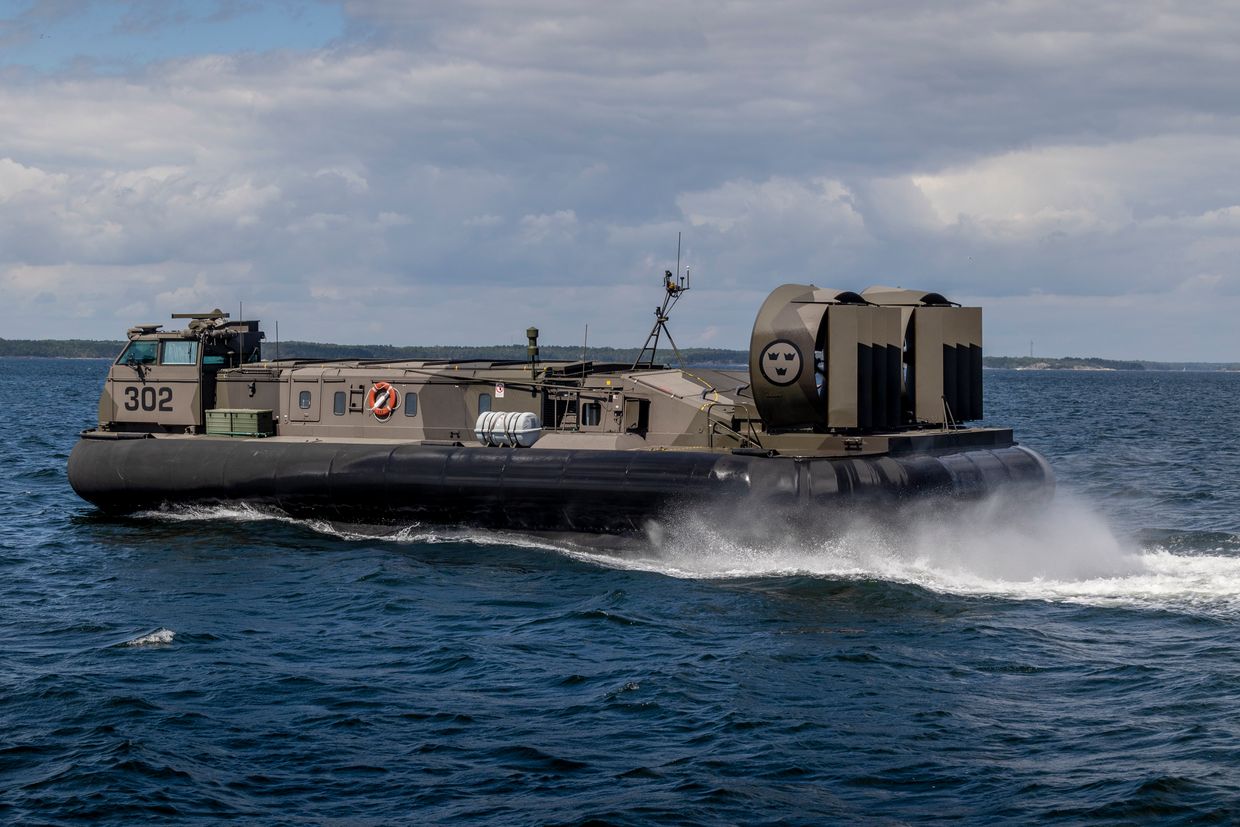
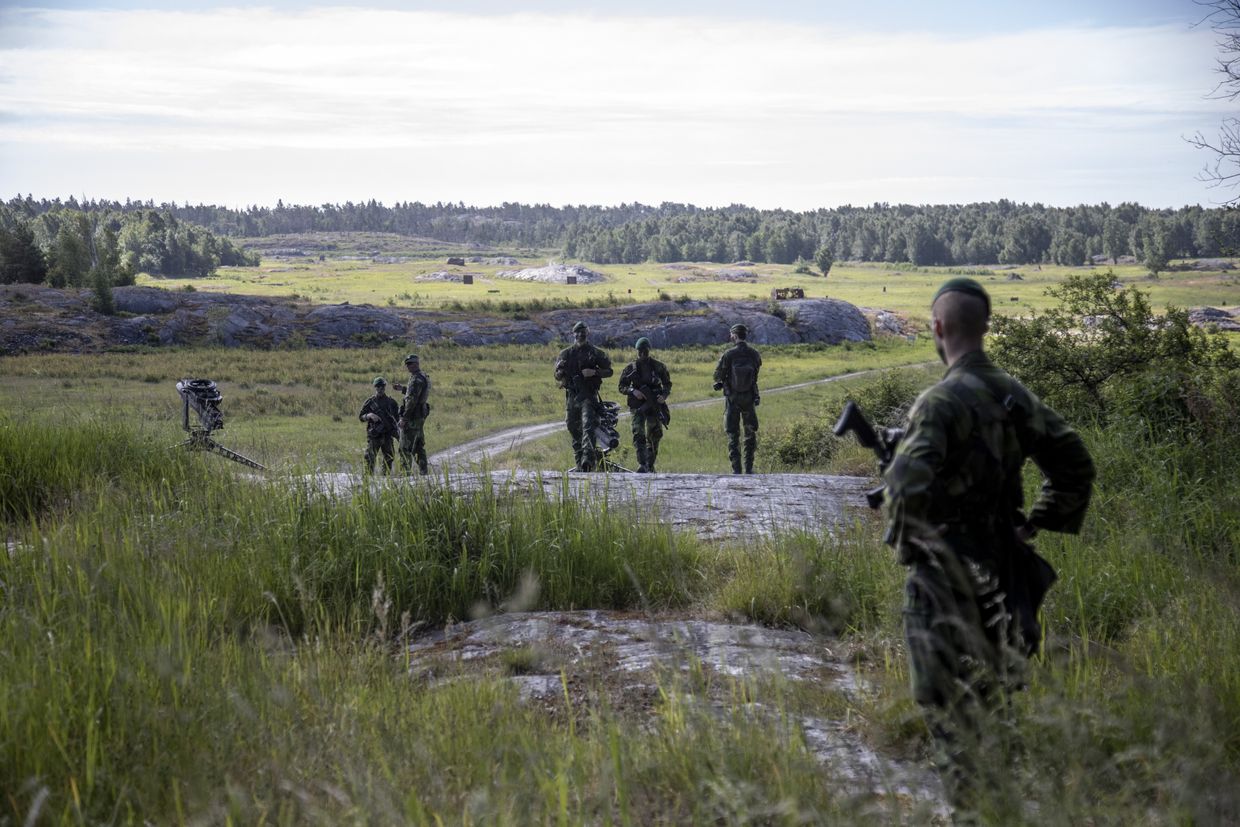
While on paper, NATO is far more powerful than Russia, Dr. Jan Kallberg, a senior fellow at the Center for European Policy Analysis, Washington D.C., and a fellow at the Army Cyber Institute at West Point, said the Kremlin could be relying on an inefficient and incoherent response from the military bloc to offset this.
"They maybe think the Western leadership isn't tough enough to stand up when things really hit the fan," he tells the Kyiv Independent, adding: "They might think that they can act quickly and the West won't have the time to do force generation in the area and they can, with little means, just capture the Baltics and the West faces a fait accompli.”
"Their bet is that the Western leadership would cave in," Kallberg said.
Two days after Kallberg spoke to the Kyiv Independent, a Russian think tank with a large influence on Kremlin policy said Moscow should consider a "demonstrative" nuclear explosion to dissuade the West from allowing its weapons to be used to strike inside Russia.
Such a nuclear scenario is, according to some Western officials, already enough to worry the U.S. to the point where Washington has taken preemptive steps to prevent it.
“Russia knows very well that it's not the only nuclear power in Europe and in the world. I don't think we are going to test a nuclear attack on any country,” President Karis said, however.
Latvian Foreign Minister Spruds is also measured in his assessment, saying that for Latvia and the other Baltic states, it's "nothing new for us."
"For us, there is no need to panic because we've been used to hybrid activities already for years," he said, adding: "It's cyber attacks, it's weaponization of illegal migration, it's disinformation campaigns, it's some incidents against critical infrastructure.
"So we've seen it, and we are experiencing it permanently."
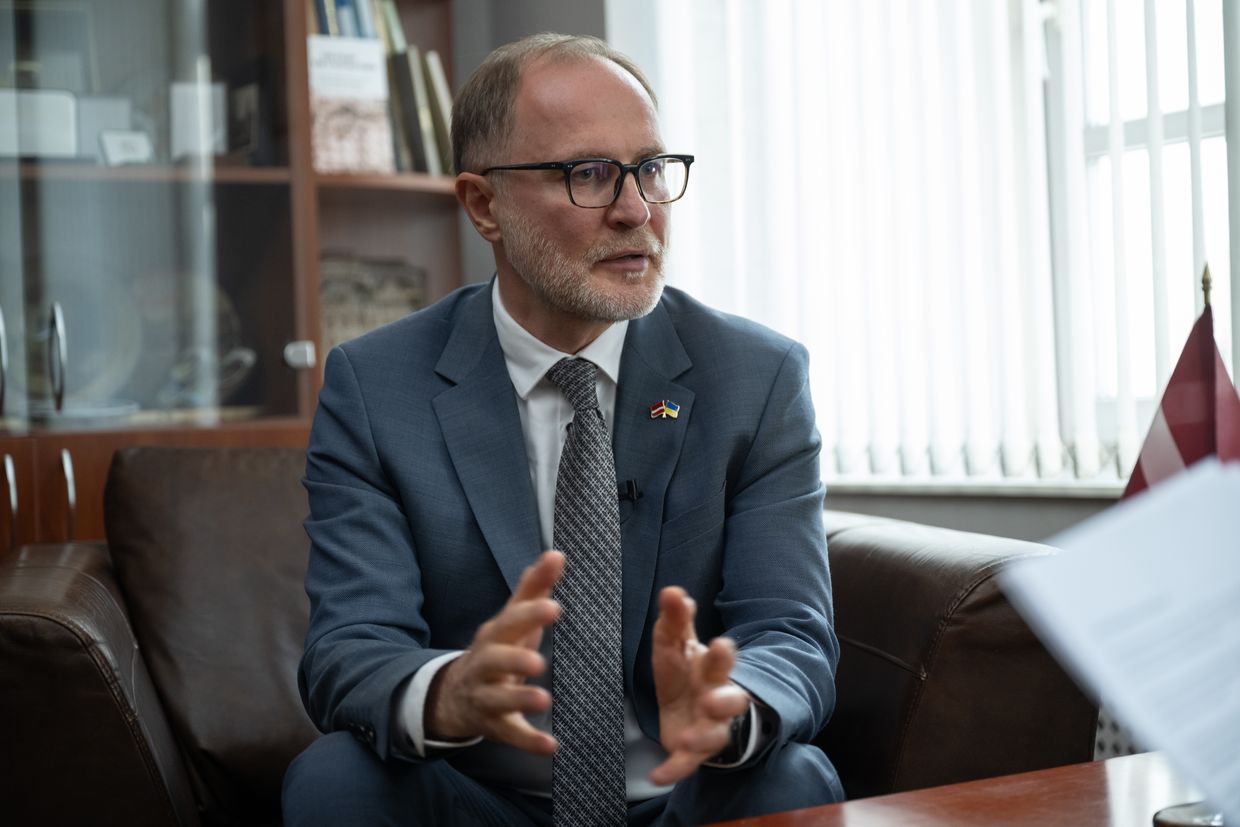
Does Russia want war in the Baltic Sea region?
As alarming as the prospect of further Russian invasions, naval assaults, and "demonstrative" nuclear explosions are, Braw cautions against getting too wrapped up in looking for outright signs of military aggression.
"Frankly, I don't think taking over the Baltic states is Russia's first objective," she said.
"If you invade a country, if you break it, you own it – and occupying and administering occupied territory is extremely cumbersome, as Russia is seeing in Ukraine. I think weakening them, destabilizing them, and making them in many ways failed states is more what Russia wants,” Braw added.
Braw points to things like GPS jamming forcing and the mysterious disappearing decrees on maritime borders as actions designed to waste the time and resources of the Baltic governments and "making them uncertain about what's next."
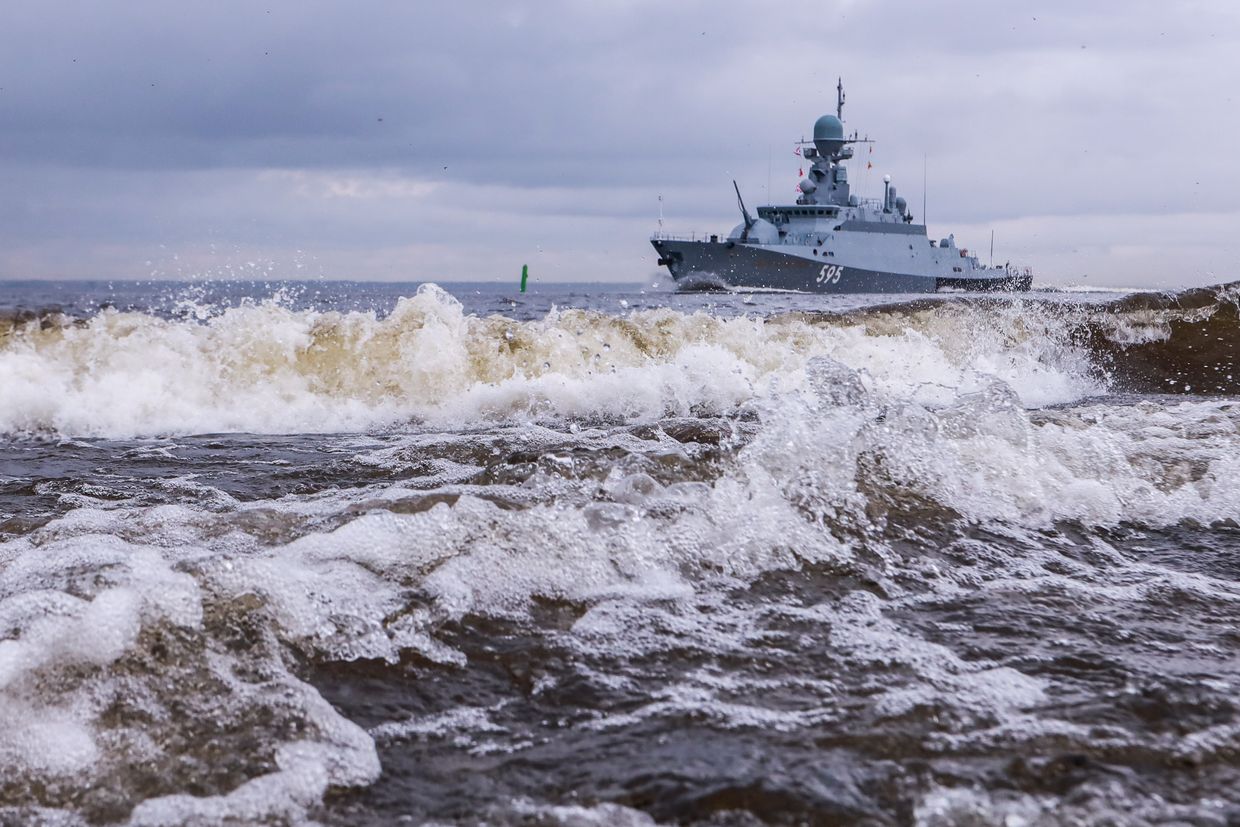
"And this is intended to create a sense of paranoia and inferiority where you eventually say, 'we just have to live with a great deal of Russian influence in the region,’" she added.
Braw also points out that there is little NATO can do about such things as it's only set up to respond to overt military aggression.
"The Russians have been imaginative before, this is what they're good at," she said.
"They think of different ways of harming other countries, achieving their goals, and they do it underneath the threshold of Article 5, which means the affected countries struggle to respond.”
Kallberg agrees that if the situation in the Baltic Sea escalates further, whatever comes next won't be an outright declaration of war but something designed to test NATO's response.
“For us, it's very important to keep this transatlantic bond. As far as defense (goes), the U.S. should be number one (leading) in this case,” President Karis said.
